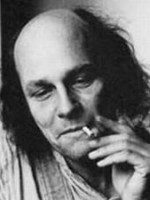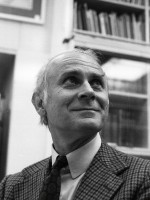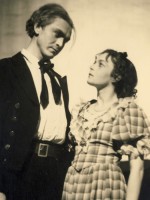Bernhard Wicki is a Actor, Director, Scriptwriter and Co-Producer Suisse born on 28 october 1919 at St. Pölten (Austria)

Bernhard Wicki (28 October 1919 in St. Pölten, Austria – 3 January 2000 in Munich) was an Austrian actor and film director.
Wicki studied in the city of Breslau such topics as Art History, History and German Literature. In 1938, he transferred to the drama school of the Staatliches Schauspielhaus in Berlin. In 1939, because of his membership in the Bündischen Jugend he was imprisoned for many months in the Sachsenhausen concentration camp. After his release he moved to Vienna, and then in 1944 to Switzerland.
After the end of World War II, he starred in many films, like Die letzte Brücke (1953) and Es geschah am 20. Juli (1955). He was also a photographer. His first attempt at directing came three years later with the documentary Warum sind sie gegen uns? (1958). He became internationally famous with his anti-war film of 1959 called Die Brücke, which was nominated for the Academy Award for Best Foreign Language Film. In 1961, he won the Silver Bear for Best Director at the 11th Berlin International Film Festival for his film The Miracle of Father Malachia. His break in Hollywood came shortly thereafter when he was chosen to direct Marlon Brando and Yul Brynner in the highly acclaimed World War II espionage thriller, Morituri in 1965.
After his death, a fund was started in 2001 and named after him in Munich, the Bernhard Wicki Memorial Fund. Since 2002, it has awarded a film prize, The Bridge, considered a peace prize. A further prize was endowed in 2006 with 15,000 euros, a prize given in the city of Emden since 2000. He was a patron of the International Film Festival in Emden-Norderney which first started in 1990.
He first married Agnes Fink, a fellow acting colleague, and later married Elisabeth Endriss, also a colleague. In the documentary Verstörung - und eine Art von Poesie (June, 2007), Elisabeth Wicki-Endriss portrayed the life and work for Wicki.
He is buried at the Nymphenburger cemetery in Munich (grave number 4-1-23).
Très peu de ses films sont connus en France, comme c'est le cas de nombreux réalisateurs allemands. Il réalise plusieurs longs métrages en allemand durant les années 1950 et 1960. C’est le film Le Pont (Die Brücke), sorti en 1959, qui le fait connaître dans le monde entier et notamment aux États-Unis. Ce film anti-belliciste raconte la tragique histoire de jeunes garçons qui défendent un pont contre des soldats américains durant la Seconde Guerre mondiale.
Après avoir vu ce film, le producteur et réalisateur américain Darryl F. Zanuck contacte Wicki pour assurer la co-réalisation de la superproduction Le Jour le plus long. Son expérience de la guerre lui permet de décrire fidèlement le camp allemand. Il évite la caricature du nazi représenté dans de trop nombreux films de guerre comme un barbare parlant anglais avec un accent allemand grotesque.
Par la suite, il réalise encore de nombreux films en allemand, qui ne remportent pas un grand succès en France.
Il a également joué dans plusieurs films, notamment dans La Notte de Michelangelo Antonioni, La Femme gauchère de Peter Handke, Paris, Texas de Wim Wenders, ainsi que dans la série allemande Derrick (épisodes Une nuit d'octobre en 1977 et Le Témoin en 1980).
Source : Wikidata
Bernhard Wicki

- Infos
- Photos
- Best films
- Family
- Characters
- Awards
Birth name Bernhard Wicki
Nationality Suisse
Birth 28 october 1919 at St. Pölten (Austria)
Death 3 january 2000 (at 80 years) at Munich (German)
Awards Bavarian Order of Merit, Grand Merit Cross of the Order of Merit of the Federal Republic of Germany
Nationality Suisse
Birth 28 october 1919 at St. Pölten (Austria)
Death 3 january 2000 (at 80 years) at Munich (German)
Awards Bavarian Order of Merit, Grand Merit Cross of the Order of Merit of the Federal Republic of Germany
Wicki studied in the city of Breslau such topics as Art History, History and German Literature. In 1938, he transferred to the drama school of the Staatliches Schauspielhaus in Berlin. In 1939, because of his membership in the Bündischen Jugend he was imprisoned for many months in the Sachsenhausen concentration camp. After his release he moved to Vienna, and then in 1944 to Switzerland.
After the end of World War II, he starred in many films, like Die letzte Brücke (1953) and Es geschah am 20. Juli (1955). He was also a photographer. His first attempt at directing came three years later with the documentary Warum sind sie gegen uns? (1958). He became internationally famous with his anti-war film of 1959 called Die Brücke, which was nominated for the Academy Award for Best Foreign Language Film. In 1961, he won the Silver Bear for Best Director at the 11th Berlin International Film Festival for his film The Miracle of Father Malachia. His break in Hollywood came shortly thereafter when he was chosen to direct Marlon Brando and Yul Brynner in the highly acclaimed World War II espionage thriller, Morituri in 1965.
After his death, a fund was started in 2001 and named after him in Munich, the Bernhard Wicki Memorial Fund. Since 2002, it has awarded a film prize, The Bridge, considered a peace prize. A further prize was endowed in 2006 with 15,000 euros, a prize given in the city of Emden since 2000. He was a patron of the International Film Festival in Emden-Norderney which first started in 1990.
He first married Agnes Fink, a fellow acting colleague, and later married Elisabeth Endriss, also a colleague. In the documentary Verstörung - und eine Art von Poesie (June, 2007), Elisabeth Wicki-Endriss portrayed the life and work for Wicki.
He is buried at the Nymphenburger cemetery in Munich (grave number 4-1-23).
Biography
D'origine suisse par son père et autrichienne par sa mère, il combat sous l'uniforme allemand en France pendant la Seconde Guerre mondiale. La guerre le marque profondément et influencera plusieurs de ses films.Très peu de ses films sont connus en France, comme c'est le cas de nombreux réalisateurs allemands. Il réalise plusieurs longs métrages en allemand durant les années 1950 et 1960. C’est le film Le Pont (Die Brücke), sorti en 1959, qui le fait connaître dans le monde entier et notamment aux États-Unis. Ce film anti-belliciste raconte la tragique histoire de jeunes garçons qui défendent un pont contre des soldats américains durant la Seconde Guerre mondiale.
Après avoir vu ce film, le producteur et réalisateur américain Darryl F. Zanuck contacte Wicki pour assurer la co-réalisation de la superproduction Le Jour le plus long. Son expérience de la guerre lui permet de décrire fidèlement le camp allemand. Il évite la caricature du nazi représenté dans de trop nombreux films de guerre comme un barbare parlant anglais avec un accent allemand grotesque.
Par la suite, il réalise encore de nombreux films en allemand, qui ne remportent pas un grand succès en France.
Il a également joué dans plusieurs films, notamment dans La Notte de Michelangelo Antonioni, La Femme gauchère de Peter Handke, Paris, Texas de Wim Wenders, ainsi que dans la série allemande Derrick (épisodes Une nuit d'octobre en 1977 et Le Témoin en 1980).
Best films
Usually with
Filmography of Bernhard Wicki (38 films)
Actor

Queen Louise (2006)
, 1h40Directed by Dieudonné
Genres Drama, Comedy
Themes Political films, Films about royalty
Actors Dieudonné, Ruth Leuwerik, Dieter Borsche, Bernhard Wicki, Hans Nielsen, Friedrich Domin
Roles Zar Alexander
Rating59%





L'humoriste, au travers d'une galerie de personnages loufoques et décalés, dresse un portrait acide de notre société. Dieudonné aborde les dépôts de bilan sous toutes leurs formes : sociaux, historiques, animaliers...
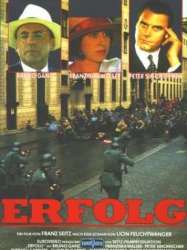
Success (1991)
, 4h25Directed by Franz Seitz, Jr.
Genres Drama
Actors Bruno Ganz, Mathieu Carrière, Manfred Zapatka, Thomas Holtzmann, Dietrich Mattausch, Bernhard Wicki
Roles Bichler
Rating65%





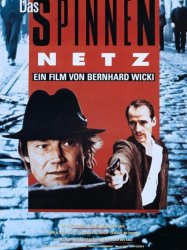
Spider's Web (1989)
, 3h16Directed by Bernhard Wicki
Origin German
Genres Drama
Themes Political films
Actors Ulrich Mühe, Klaus Maria Brandauer, Armin Mueller-Stahl, Andrea Jonasson, Ullrich Haupt, Hark Bohm
Roles Herr Waizenbaum
Rating72%





The film centers on young right-wing Leutnant (lieutenant) Theodor Lohse (Ulrich Mühe) who suffers personal and national humiliation during the downfall of the German Empire and the subsequent German Revolution of 1918 as the aftermath of World War I, from whence on he pledges revenge on all those he blames for the new times: Democrats, socialists, and Jews. Thus, he becomes increasingly active in the right-wing underground of the early Weimar Republic, joining an organization called "S II" (probably based on real-life Organisation Consul that was responsible for a number of political and anti-Semitic assassinations) where his immediate superior is Baron von Rastchuk (Armin Mueller-Stahl). Baron von Rastchuk brings Lohse in contact with Prince Heinrich in order to get Lohse employed, a favor for which the homosexual Prince demands one-time bodily obligingness from Lohse. In spite of his apparent shock and disgust, Lohse yields to the Prince out of his opportunism and willingness to please his superiors.
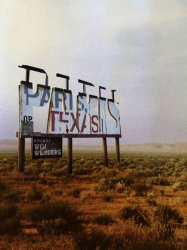
Paris, Texas (1984)
, 2h27Directed by Wim Wenders
Origin German
Genres Drama, Romance
Themes Films about families, Transport films, Films about automobiles, Road movies
Actors Harry Dean Stanton, Nastassja Kinski, Dean Stockwell, Aurore Clément, Bernhard Wicki, Hunter Carson
Roles Doctor Ulmer
Rating80%





Travis Henderson (Harry Dean Stanton) is walking alone across a vast South Texas desert landscape. Looking for water, he enters a saloon and collapses. He is treated by a doctor (Bernhard Wicki), but does not speak or respond to questions. The doctor finds a phone number on Travis, calls the Los Angeles number, and reaches his brother, Walt Henderson (Dean Stockwell), who agrees to pick him up. When Walt arrives in Texas, he discovers that Travis is gone. When he finds him wandering alone, Walt tells his silent brother that he will take him back to Los Angeles. They stop at a motel, but Travis wanders off again. Walt finds him, and the two drive to a diner, where Walt begins to question the still silent Travis more forcefully about his disappearance. Walt and his wife, Anne (Aurore Clément), have not heard from Travis in four years. After Travis abandoned his son Hunter (Hunter Carson), Walt and Anne took care of him for four years. Travis is visibly moved by the mention of his son, and tears flow from his eyes.

Dangerous Moves (1984)
, 1h50Directed by Richard Dembo
Origin France
Genres Drama, Thriller
Themes Jeu, Sports films, Films about chess, Political films
Actors Michel Piccoli, Liv Ullmann, Alexandre Arbatt, Leslie Caron, Wojciech Pszoniak, Jean-Hugues Anglade
Roles Pühl
Rating66%





Pavius Fromm est un jeune génie des échecs, impétueux et provocateur. Lituanien, il a fui son pays et la mainmise soviétique, et réside en Occident. Pour la finale du championnat du monde d'échecs en Suisse, il doit affronter un compatriote bien plus âgé, Liebskind, qui a, lui, le soutien du régime.

A Love in Germany (1983)
, 2h12Directed by Andrzej Wajda
Origin German
Genres Drama
Themes Films about sexuality, Political films
Actors Hanna Schygulla, Armin Mueller-Stahl, Ralf Wolter, Daniel Olbrychski, Marie-Christine Barrault, Bernhard Wicki
Roles Dr. Borg
Rating65%





The story takes place in a little German town at the border to Switzerland. The owner of the local fruit-and-vegetables shop has been called up. His shop has a key function for the town's supply situation. His customers know from World War I how rationing can make the owner of such a shop very rich if only he's egoistic enough to get corrupted by well-heeled customers who don't care whether their poorer country fellowmen's families starve. So when his wife Paulina starts to run the shop alone, her character is subsequently of public interest for all citizens who are concerned about the well-being of their families during the ongoing war. Paulina shares the fate of other soldier's wives who constantly face the fear her husband might return crippled, maimed or not at all. But because her husband's shop is highly important for the town's community, she gets somebody who can ease her working load. She is also luckier than other women for she is still young and attractive. So is the prisoner of war named Stanislaus who must serve her. She obviously finds him handsome and relishes that he has to obey all her commands. So she decides she doesn't need to be one of the lonesome wives anymore. When she seduces him she finds him very virile and they sometimes celebrate their love even literally in the open. Finally a town's official informs her that her evident bliss leads other women to doubts about her integrity. Still she doesn't let go of her love affair although the town official keeps on warning her that under the prevailing Nazi laws her adultery is punishable as "Rassenschande". Paulina keeps on putting the Polish POW in lethal danger until he is finally taken to court and sentenced to death. Paulina is imprisoned for two years. Decades later her son and her grandson visit the still existing little town in order to confront the man who warned Paulina repeatedly but in the end let her go down. The both of them are appalled when they realise he still lives in the very town where the citizens forced him to take action on Paulina and he doesn't hide.
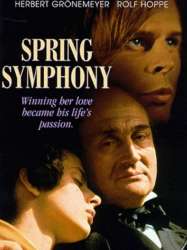
Spring Symphony (1983)
, 1h43Directed by Peter Schamoni
Origin German
Genres Drama, Biography, Musical
Themes Films about children, Films about music and musicians, Films about classical music and musicians, Piano, Enfant musicien
Actors Nastassja Kinski, Herbert Grönemeyer, Bernhard Wicki, Peter Schamoni, Kitty Mattern, Inge Marschall
Roles Baron von Fricken
Rating61%





Clara Wieck vit avec son père Friedrich Wieck, professeur de piano, à Leipzig. Il est convaincu de son talent au piano et fait tout son possible pour révéler sa fille. Inlassablement il oblige l'enfant prodige à des répétitions et des concerts. En voyant la réussite de la jeune fille et donc des méthodes du père, d'autres jeunes pianistes sont séduits. Le jeune pianiste et compositeur Robert Schumann est un élève de Wieck. Clara est âgée de 11 ans, Robert en a 20. Des années plus tard, Clara tombe amoureuse de Robert, compositeur talentueux mais sans succès. Le père Wieck s'oppose à leur union et envoie sa fille à Dresde prendre des cours de chant pour les séparer. Le jeune couple n'abandonne pas. Robert retrouve Clara, ils décident de se marier. Cependant, ils ont besoin de l'accord du père de la jeune fille. Ils lui intentent un procès devant un tribunal de Leipzig qu'ils remportent. Cela aboutit à la rupture entre le père et la fille, entre le professeur et l'élève.

Death Watch (1980)
, 2h8Directed by Bertrand Tavernier, Jean Achache
Origin France
Genres Drama, Science fiction, Thriller, Social science fiction
Themes Films about television, Films set in the future, La téléréalité, Political films, Dystopian films
Actors Romy Schneider, Harvey Keitel, Harry Dean Stanton, Thérèse Liotard, Caroline Langrishe, William Russell
Roles Katherine's Dad
Rating65%





The film is set in a future where death from illness has become extremely unusual. When Katherine Mortenhoe (Romy Schneider) is diagnosed as having an incurable disease, she becomes a celebrity and is besieged by journalists. The television company NTV (headed by Vincent Ferriman) offers her a large sum of money if she will allow her last days to be filmed and made into a reality television show – they have already spied on her as she is told of her diagnosis (her doctor is colluding with them) and prepared posters for the show which show her face (to her annoyance when she sees the posters on display before they have contacted her).
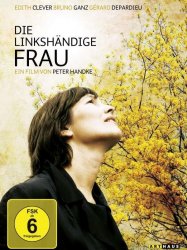
The Left-Handed Woman (1978)
, 1h55Directed by Peter Handke
Origin German
Genres Drama
Themes La banlieue française
Actors Edith Clever, Bruno Ganz, Bernhard Theodor Henry Minetti, Bernhard Wicki, Rüdiger Vogler, Gérard Depardieu
Roles The Publisher
Rating64%





Marianne et Bruno, un couple d'Allemands, sont mariés depuis dix ans et habitent à Clamart, une banlieue résidentielle de la région parisienne. Bruno est l’efficace directeur d’une société implantée à Paris. Marianne, comme si elle avait eu une soudaine illumination et sans autre raison apparente, explique à Bruno qu’elle souhaite se séparer de lui afin d’élever seule Stefan, leur fils unique. Elle se trouve confrontée à des problèmes qu’elle ignorait jusqu’alors : difficultés matérielles et de communication, puis la solitude qui s’installe avec l’indépendance dans une banlieue française qui va lui paraître de plus en plus étrange…

Despair (1978)
, 1h59Directed by Rainer Werner Fassbinder
Origin German
Genres Drama, Thriller, Fantasy
Themes Medical-themed films, Psychologie, L'usurpation d'identité, Films about psychiatry, Escroquerie
Actors Dirk Bogarde, Andréa Ferréol, Klaus Löwitsch, Volker Spengler, Ingrid Caven, Alexander Allerson
Roles Orlovius
Rating68%





Hermann Hermann is a successful entrepreneur in the 1930s Germany. As the Nazis gradually rise to power, Hermann, who is a Russian émigré, becomes increasingly frightened and mentally unstable. His attempts at leaving the country are accompanied by symptoms of madness, the most vivid being his belief that he found his exact double, although the person in question differs from him in every respect. He creates an elaborate plan that would allow him to flee to Switzerland, but it soon becomes unclear whether his voyage leads him to a neutral country or merely allows him to take refuge in his madness.

The Glass Cell (1978)
, 1h33Directed by Hans W. Geißendörfer
Origin German
Genres Drama, Crime
Actors Brigitte Fossey, Helmut Griem, Dieter Laser, Walter Kohut, Bernhard Wicki
Roles Polizeikommissar Österreich
Rating66%






Der Mann im Schilf (1978)
, 1h53Directed by Manfred Purzer
Origin German
Genres Drama
Actors Jean Sorel, Erika Pluhar, Nathalie Delon, Bernhard Wicki, Heinz Bennent, Tilo Prückner
Roles Sir Gerald
Autriche, 1934. Après trois années de fouilles archéologiques à Héraklion, le jeune archéologue Robert retourne chez lui à Salzbourg. Il trouve le pays profondément modifié par les tensions politiques et sociales. La raison de son retour est son mariage avec Hanna alors qu'il est amoureux de Loraine, l'épouse de son employeur britannique, Sir Gerald. Tout éclate avec le putsch de juillet . Hanna n'est pas non plus satisfaite de sa relation, elle veut sauver ce qui peut l'être et demande Robert d'aller à l'hôtel d'un château isolé à proximité d'un lac envahi par des roseaux.

Crime and Passion (1976)
, 1h39Directed by Ivan Passer
Genres Drama, Thriller, Crime
Actors Omar Sharif, Joseph Bottoms, Karen Black, Bernhard Wicki, Elma Karlowa, Volker Prechtel
Roles Rolf
Rating50%





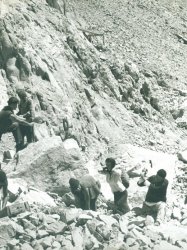
Carlos (1971)
, 1h47Directed by Hans W. Geißendörfer
Genres Western
Actors Gottfried John, Anna Karina, Bernhard Wicki, Geraldine Chaplin, Horst Frank, Thomas Hunter
Roles Philipp
Rating65%






Portuguese Vacation (1963)
, 1h37Directed by Pierre Kast
Origin France
Genres Drama, Comedy-drama
Actors Françoise Prévost, Jean-Pierre Aumont, Michel Auclair, Françoise Arnoul, Catherine Deneuve, Bernhard Wicki
Roles Bernard
Rating56%





Françoise et son mari Jean-Pierre invitent, pour chasser l'ennui, quelques couples amis à passer un week-end dans leur grande villa sur la côte portugaise.
 Connection
Connection


